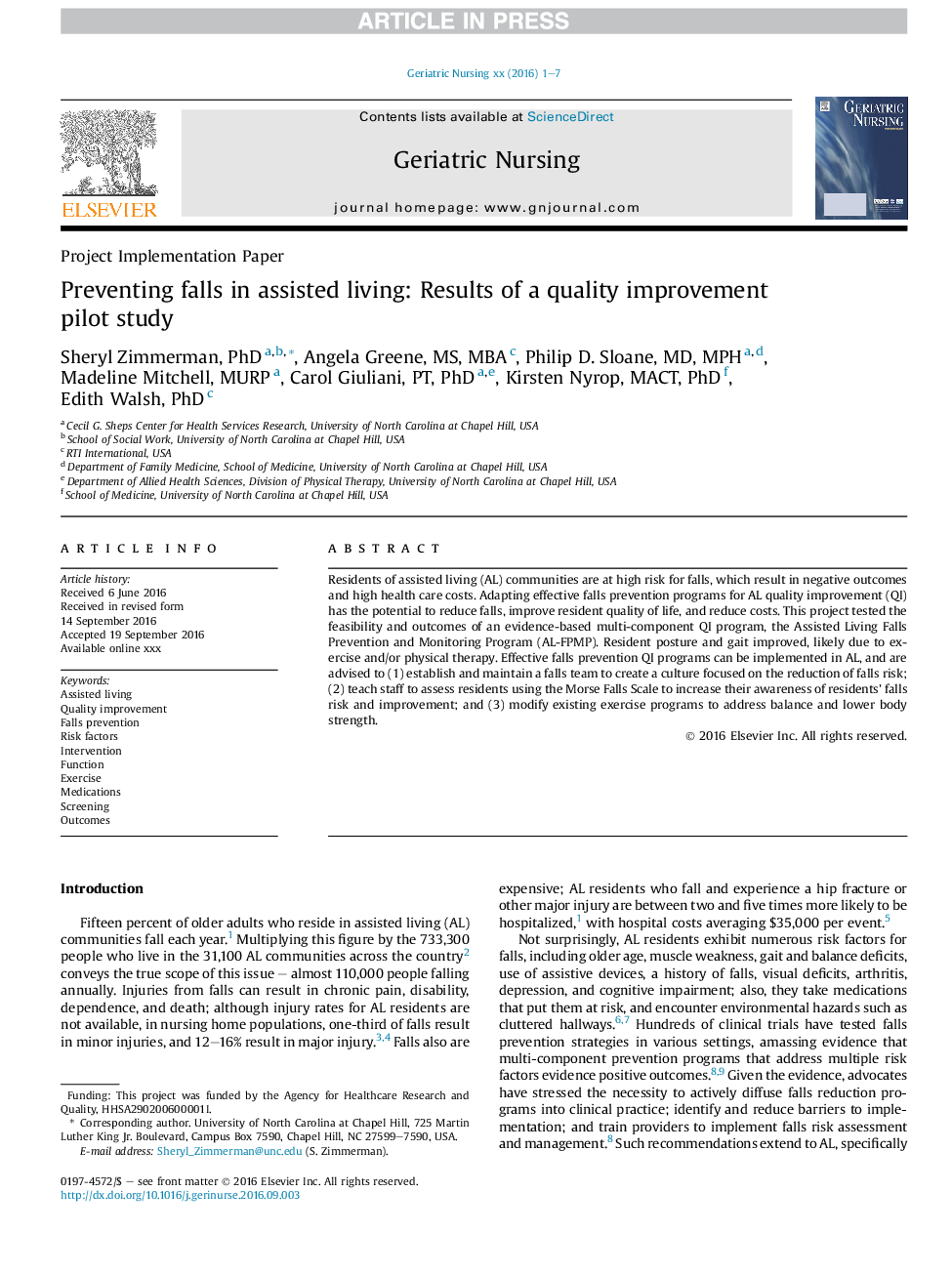| Article ID | Journal | Published Year | Pages | File Type |
|---|---|---|---|---|
| 5567944 | Geriatric Nursing | 2017 | 7 Pages |
Abstract
Residents of assisted living (AL) communities are at high risk for falls, which result in negative outcomes and high health care costs. Adapting effective falls prevention programs for AL quality improvement (QI) has the potential to reduce falls, improve resident quality of life, and reduce costs. This project tested the feasibility and outcomes of an evidence-based multi-component QI program, the Assisted Living Falls Prevention and Monitoring Program (AL-FPMP). Resident posture and gait improved, likely due to exercise and/or physical therapy. Effective falls prevention QI programs can be implemented in AL, and are advised to (1) establish and maintain a falls team to create a culture focused on the reduction of falls risk; (2) teach staff to assess residents using the Morse Falls Scale to increase their awareness of residents' falls risk and improvement; and (3) modify existing exercise programs to address balance and lower body strength.
Keywords
Related Topics
Health Sciences
Medicine and Dentistry
Geriatrics and Gerontology
Authors
Sheryl PhD, Angela MS, MBA, Philip D. MD, MPH, Madeline MURP, Carol PT, PhD, Kirsten MACT, PhD, Edith PhD,
